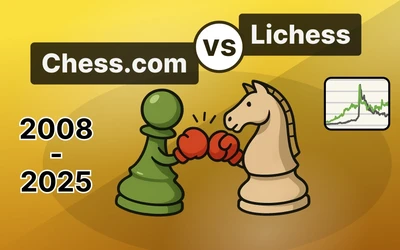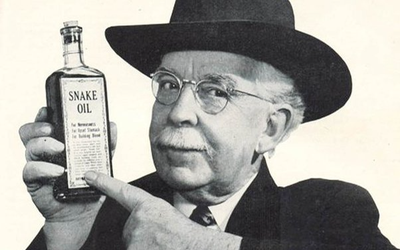
https://lichess.org/1EXdS55N
Lessons from my crazy horde journey
How I played horde and what I've learned about myselfWhy?
A few months ago I decided to play Horde, setting a goal to reach a rating of 2300. Why did I do so?
First of all, Horde is a very interesting game where one side has 36 pawns, while the other has a standard chess set. The side with pawns wins by delivering checkmate, while the other side wins by collecting all the pawns. A stalemate is a draw. The pieces move as in standard chess.
More can be found here: https://lichess.org/variant/horde
Horde is similar to standard chess in many respects, yet very different in many others. Being a strong chess player helps, but in itself it doesn’t guarantee success. Piece coordination is very important in horde (when playing with black) as well as in chess. For white it pays off to have a compact pawn mass without many weaknesses. Zugzwang motifs appear frequently and one should also calculate well to score.
Next, I felt the desire to learn something new, to get out of the routine of everyday life. To experience the feeling that I can improve quickly in something, because my initial knowledge was low. (I had played some horde games before starting on this account, but not much.)
Finally, I might become a trainer one day, though not really soon. And a good trainer should know more about the challenges which the students face.
Although I declare on my profile that I am not a trainer, other users occasionally ask me what would I advise them to play chess better.
When answering the question, I collected the following tips and since them copied and pasted the text to save time. It looks like this:
It helps to study games of masters with comprehensible annotations (with the ideas behind the moves), ideally annotated by strong players.
It’s good to play against equally strong or somewhat stronger opponents, to try hard and learn something.
It makes sense to analyze one's own games, to avoid making the same mistakes again and again.
If you know what’s your weakness in chess, it makes sense to work on it. For various players it can be various things, e.g. openings or some opening, strategy, tactics, calculation, endgames in general or some concrete endgames, concentration or whatever else. It's very general, as I don't know you and your style and I'm not a trainer. (And even less willing to do trainer's job for free.)
Have a good day!
More bits of advice could be used, but the final sentence is important. A trainer should be friendly, it’s important to have a good relationships with the students.
I decided to test my recommendations on horde. It’s not exactly chess, but not altogether different, either. I wanted to learn more about learning, but ended up learning more about myself. It cost me a lot of time, but hopefully I can learn a lesson from it.
A quick start
Before playing, I quickly studied some of the materials mentioned here: https://lichess.org/team/lichess-horde
They helped me to understand the horde strategy better and to learn a bit of theory. That said, initially I was regularly confusing the variations, as the pawn moves looked too similar to each other. I was playing against 1.d5 as against 1.e5, which is mostly not good. It happens to me even now, but to a much lesser extent.
Lichess offers a limited number of variants, but it is probably a sensible decision, because it is easier to find opponents when there are just 8 variants, then if there were many decades of them.
There are many Horde tournaments every day, with different time controls. There is even a Horde World Championship and there are special Horde Titles as well, but to participate in the former one needs to play at least 500 rated games, and the titles are hard to achieve.
Reaching a certain rating is not a good motivation, one should primarily enjoy the process and continue learning. (Not only in Horde.) If you are improving, the rating will follow.
Of course I know this very well, but I needed some objective measure. (Although rating is not as objective as one could think. True to my nickname, I was mostly playing 3-minute games, and almost never zerking back, as horde games can last above 70 moves and it’s hard to play so fast when your experience is very limited and reacting to the opponent’s moves takes time. (In fact, when playing against the horde, I often failed to notice that the opponent had played a move, thus losing precious seconds.)
My ambition to reach a peak rating of 2300 was otherwise reasonable, as learning some theory and some strategy should bring me there sooner or later, without spending months or years on the goal. At least that’s what I believed. If I tried really hard, I would be able to reach 2400 one day, but the cost would be too high, I would have to spend too much time and energy on that.)
In my first tournament on this account I did well and reached a provisional rating slightly above 2200. Then I dropped down to about 2150, but getting practice and learning from my mistakes helped me, and I soon crossed 2200 and landed around 2250, where I got stuck. Then I realized that getting to 2300 could take me a lot of time, and decided to modify the goal to getting there after 200 or fewer rated games. The initial improvement was very fast and visible, as it is easy to improve, when you knew very little before.
Always one step away?
Then I reached 2271, took some break and later came back, hoping to reach the 2300 barrier. Before coming back, I looked at my games and at a bit of theory. With some luck I several times came very close to the coveted 2300 barrier, several times stumbling just before getting there.
When I was on 2299, I lost the following crazy game
To be objective, I also admit that there had also been some games where I was very lucky, winning from completely lost positions or winning with less than a second left.
On those four days after a break I just became crazy, spending over 5 hours per day on Lichess, playing decades of Horde games per day. (And I spent much more time online, as I'm also playing on chess.com sometimes.) I often started the day by coming very close to my glass ceiling, only to lose those points back and ending the day where I started. I was tired and it cost me a lot of time and energy, which I could use better. I was feeling physically unwell and tired. It isn’t completely clear whether I was sleeping poorly because spending too much time online or the other way around, but something was wrong.
From learning to addiction
Professional chess players should have other hobbies, but they should be more different from their routine. There’s nothing wrong with horde, but right now it brings me more harm than good. For this reason I’ve decided to take a break from Horde for at least 10 days. I have some work to do, several hobbies, some problems and many friends, and spending 4 hours per day on horde is way too much for me. I was playing much more than I should, and taking fewer lessons from my games than before.
What started as an experiment about learning, ended up as an experiment with an addiction. I’ve never taken drugs, I’m neither a drinker, nor a smoker. It’s never too late to start, but I understandably don’t want to do so, as addictions take away more than they bring. I’ve been spending too much time online, yet haven’t had problems with gambling addiction. Well, I played a lot of online blitz during the pandemic and I have quit correspondence chess on Lichess “forever” for 3 or 4 times, but it was more or less under control. It was more complicated with Duolingo, but it’s also under control now.
One of my relatives, a very cultured and educated gentleman, started buying a plenty of expensive books in his late years, hoping to win a big prize in a competition run by the publishing house. They were sending him letters, making him believe that a big win was very close, pushing him into buying even more books. Eventually his relatives took control of his payments. Those books were mostly good, but it was very painful to see three unpacked issues of the same book in his library. After his death we have sold some of those books and got very little in return. My relative was several decades older than I’m now. He was well-read and such phenomena as “publishers’ lotteries” hadn’t existed for a major part of his life. Yet the gambling addiction seems to concern various age groups, and being a professional chess player doesn’t prevent one from getting affected.
The summary
I got from a level around 2170 in horde to a level around 2275 relatively fast by employing the above-mentioned recommendations which I had given to the others. This shows that those recommendations work. I twice finished second in the Daily Horde Arena and twice first in weaker editions of the Hourly Horde Arena. That said, I didn’t reach 2300 but only 2299, possibly with some decimals. It doesn’t matter in terms of improvement, yet this single point caused me much more suffering than it should. I could surely reach 2300, but it could take me quite some time, so I've given up the goal. I might play horde again, but rather enjoying the game and occasionally learning something new.
To sum up, I’ve tried to take some lessons from my experience:
- As already mentioned, ratings are much less important than we sometimes think. They shouldn’t be the main goal, but rather an additional reward. The activity itself and improvement should be rewarding.
- Horde is a nice and very interesting game, but for me it’s not more than that. (It’s not so little after all.) There are more important things in life. I’m a strong chess player, while in horde I have scores 0-11 and 0-5 against some opponents, which feels a bit irritating. One aspect which I don't like so much about horde is that it can only be played online, as the demand for white pawns would otherwise be too high.
- One should have hobbies, but they should optimally differ from one’s work.
- To perform well, one should know when to play, when not and when to stop. If I remember correctly, GM Avetik Grigoryan recommended playing around 9 blitz games per day and then learning from one’s mistakes. It should be a good way to improve one's results. In this way I could’ve reached 2300 in less than 200 games.
- Experiments might show other things than we had expected.
- It’s good to take lessons from your experience.
- Making the right conclusions is good, but following them is what matters most!
Thank you for reading this text!
You may also like
 GM ILikeBlitz
GM ILikeBlitzDuck power
Don't be afraid, this text is not about maths Mcie
McieFinding miracle tactics even in check!
If you can find tactics here, you can find them anywhere ChessMonitor_Stats
ChessMonitor_StatsWhere do Grandmasters play Chess? - Lichess vs. Chess.com
This is the first large-scale analysis of Grandmaster activity across Chess.com and Lichess from 200… GM ILikeBlitz
GM ILikeBlitzSeven tips how to write a successful chess book
Seven tips how to write a successful book – or not thibault
thibaultHow I started building Lichess
I get this question sometimes. How did you decide to make a chess server? The truth is, I didn't. CM HGabor
CM HGabor